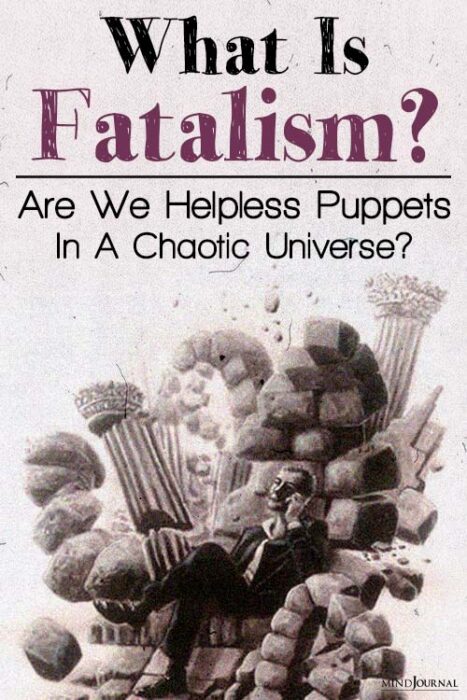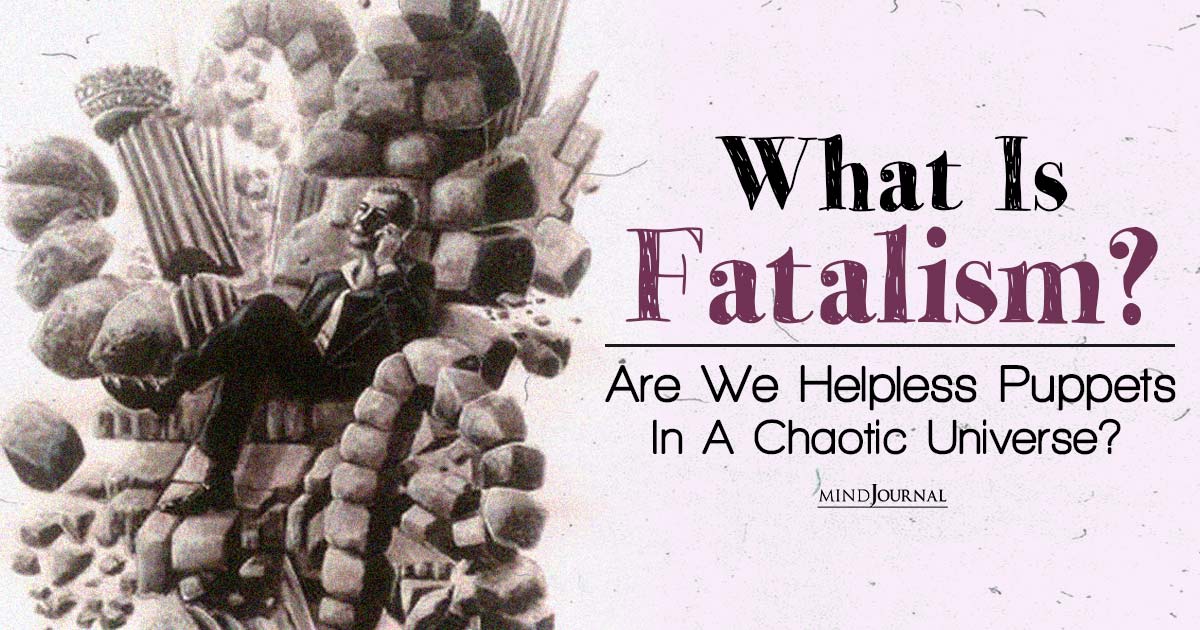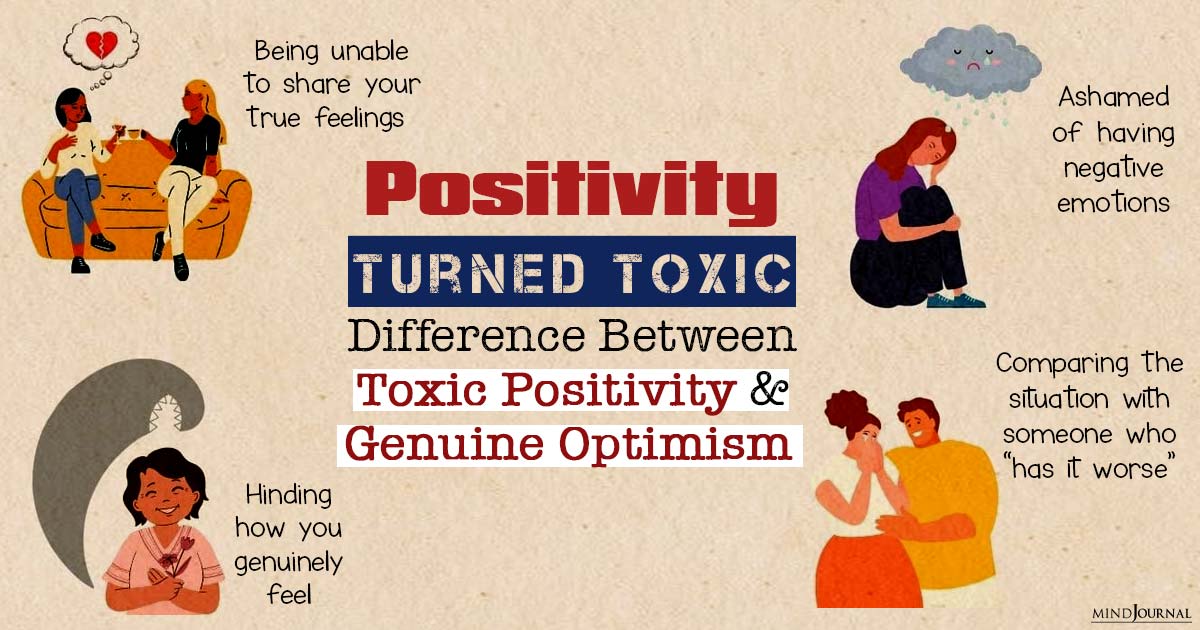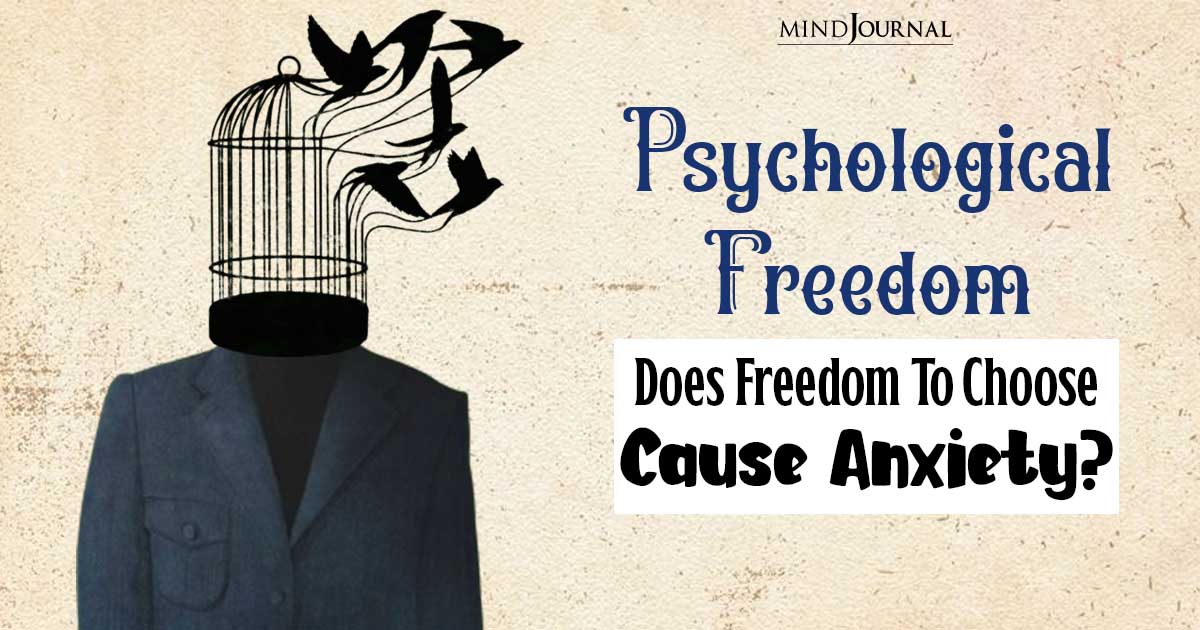Fatalism has been a topic of debate among philosophers, theologians, and scholars for centuries. While some see it as a comforting belief in the face of uncertainty, others view it as a defeatist attitude that undermines human agency and responsibility.
Additionally, it can also be a source of frustration and resignation, as it implies that your efforts and intentions are ultimately futile.
Some scholars have argued that fatalism can be seen as a coping mechanism for dealing with uncertainty and stress, as it allows you to accept your circumstances and focus on what you can control. Others have criticized it for promoting a sense of helplessness and resignation, and for discouraging personal growth and development.
In this article, we will explore what is fatalism, the different types of fatalism, their impact on individuals and society, and why it is important to let go of a fatalist mindset.
First, let’s talk about what is fatalism.
Related: What Is Nihilism Philosophy: Unveiling the Philosophy of Life’s Pointlessness
What Is Fatalism?
Fatalism is the belief that everything that happens in life is already predetermined and inevitable. This means that no matter what you do, the outcome will always be the same. For example, being a fatalist means thinking that you are destined to fail in life and that there is nothing you can do to change it.
This belief can make you feel powerless and helpless as if your actions don’t matter. While it may provide temporary comfort, it can ultimately be detrimental to personal growth and development, as it suggests that you have no control over your life.
The roots of fatalism can be traced back to ancient Greek and Roman philosophy, where the idea of fate or destiny was closely linked to the concept of the gods and their will. In the Middle Ages, it became intertwined with Christian theology, with some theologians emphasizing the idea of predestination and the concept of divine providence.
Now that we know what is fatalism, let’s talk about the different types of fatalism.
Types Of Fatalism
There are several types of fatalism, each with its own nuances and implications. The most common types of fatalism are:
1. Theological Fatalism
One of the most common types of fatalism, theological fatalism is the belief that God or some supernatural force has already determined the course of events, and that human beings have no control over their fate. This type is often associated with religious doctrines that emphasize predestination or divine providence.
For example, in some Christian traditions, it is believed that God has already determined who will be saved and who will be damned and that human actions have no impact on this outcome.
2. Logical Fatalism
It is the belief that events are logically necessary and inevitable, based on the laws of nature or the principles of logic. This type of fatalism is often associated with determinism, which holds that all events, including human actions, are predetermined by previous causes.
For example, a determinist might argue that if we could know all the causes that led up to a particular event, we could predict that event with complete accuracy. This type of fatalism is often associated with scientific determinism, which holds that all natural phenomena are subject to the laws of nature and are therefore predetermined.
3. Cultural Fatalism
This is probably one of the most common types of fatalism.
Cultural fatalism is the belief that certain events or outcomes are inevitable because of cultural, social, or historical factors. For example, some people may believe that poverty or social inequality is an inevitable result of capitalism or globalization.
This type can be seen in many cultural traditions, where certain outcomes or events are seen as inevitable based on historical or social factors. For example, in some Asian cultures, it is believed that your fate is predetermined based on your birth date and time of birth and that this determines your personality traits, fortune, and destiny.
Related: 10 Healthy Ways To Get Through Difficult Times (Insights From Stoic Philosophy)
4. Psychological Fatalism
It is the belief that your personality and behavior are predetermined and unchangeable. This can be seen in certain psychological theories, such as Freudian psychoanalysis, which emphasize the role of unconscious forces in shaping human behavior.
For example, if you believe in psychological fatalism you might argue that your personality traits and behavior are determined by your childhood experiences or unconscious desires and that you have little control over these factors.
5. Environmental Fatalism
Environmental fatalism is the belief that environmental problems, such as climate change, are inevitable and cannot be prevented or mitigated. This can lead to a sense of resignation and apathy and can discourage efforts to address environmental issues.
For example, a person who believes in environmental fatalism might argue that climate change is an inevitable result of human activity and that there is little that can be done to prevent it.
Now that we have discussed the different types of fatalism, let’s move on to why you should give up on it.
10 Reasons Why You Should Not Believe In Fatalism
1. It undermines human agency.
Human agency is the capacity of people to act intentionally and make choices that affect their lives and the lives of others. Believing in fatalism undermines this capacity by suggesting that events are predetermined and that you have no control over your own fate.
This can lead to a sense of helplessness and resignation, which can directly affect your personal and social growth and development.
2. It discourages personal responsibility.
Personal responsibility is the idea that you are accountable for your own actions and decisions. Being a fatalist can lead to a sense of resignation and apathy, as you may feel that your actions have no impact on your fate.
This can discourage personal responsibility and accountability for your own life and choices, leading to a lack of motivation and ambition.

3. It promotes a defeatist attitude.
Fatalism can lead to having a defeatist attitude, where you feel powerless to change your circumstances or improve your life.
This can lead to a lack of motivation and a sense of hopelessness, which refuses to leave you, and keeps you making you think that you will be stuck forever where you are right now.
4. It can reinforce social inequalities.
Being a fatalist can reinforce social inequalities and injustices, by perpetuating the status quo and discouraging efforts to change it. If you believe that certain outcomes are predetermined, you may be less likely to challenge social or economic systems that perpetuate inequality.
This can lead to a lack of social and political engagement in your life which can negatively impact your self-development and even interfere with your social life.
Related: How To Stop Being Cynical All The Time: 3 Steps To Transform Cynicism Into Optimism
5. It can lead to a lack of innovation and creativity.
Innovation and creativity are essential for personal development and social growth. However, if you are a fatalist, you will be stuck when it comes to creativity and innovation.
You will constantly feel that there is no point in exploring new ideas or taking risks. This can stifle your progress and innovation in various spheres of your life, and keep you stuck in a rut.
6. It discourages self-improvement.
Self-improvement is essential if you want to progress in life. Believing in fatalism can discourage self-improvement, as you may feel that since your fate is predetermined, there is really no point in striving to be better.
This leads to a lack of ambition and a stagnant sense of self, and you feel like you have nowhere else to go and nothing else to achieve.

7. It can cause feelings of helplessness and despair.
Being a fatalist can lead to you feeling depressed and helpless at times, as you may feel that you have no control over your circumstances or future.
This can lead to a sense of hopelessness and low self-esteem, which can be detrimental to personal and social growth and development.
8. It can lead to a lack of social and political engagement.
Social and political engagement is essential for social and political growth and development. Believing in fatalism can discourage social and political engagement, as you may feel that your actions have no impact on the world around you.
This can lead to a lack of civic engagement and a sense of disconnection from one’s community.
9. It can affect and even discourage your personal growth and development.
When you identify as a fatalist, you are indirectly discouraging your personal growth, as you may feel that your destiny is predetermined and there is no point in striving for personal improvement.
This can lead to a lack of self-awareness and a stagnant sense of self, which causes you to think that there’s nothing more you need to do to improve yourself.
10. It can be harmful to mental health.
Being a fatalist can be harmful to your mental health too, as it can lead to a sense of helplessness and hopelessness within you.
This can lead to depression, anxiety, and other mental health issues, which directly affect your overall well-being and personal growth.
Related: Shifting Paradigms: 10 Things That Change Your Perspective On Life For The Better
Takeaway
Fatalism is a complex and controversial belief that has been debated for centuries. While it may offer temporary comfort or reassurance, it ultimately undermines human agency, creativity, and responsibility.
Giving up on fatalism means recognizing that you have the power to shape your own life and the world around you. By embracing a sense of agency, possibility, and social responsibility, you can create a more just and equitable world for yourself and future generations.









Leave a Reply
You must be logged in to post a comment.